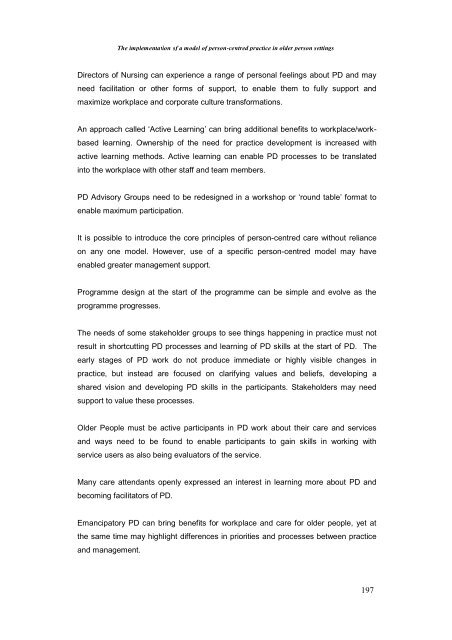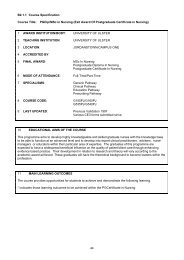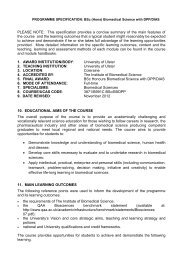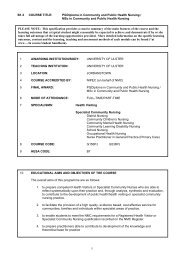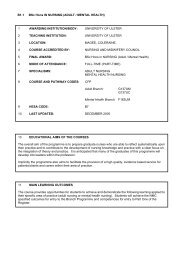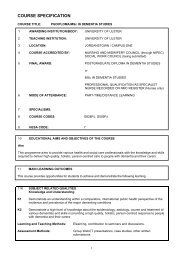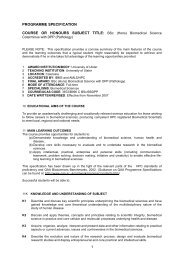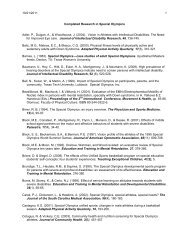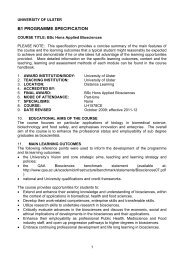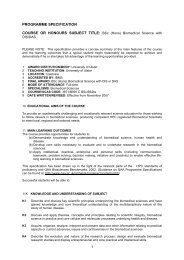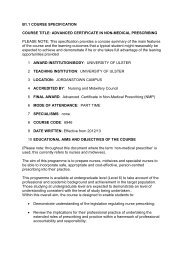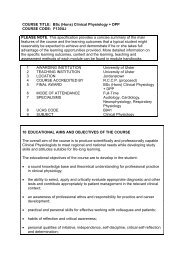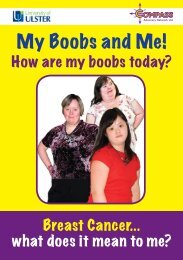The Implementation of a Model of Person-Centred Practice In Older ...
The Implementation of a Model of Person-Centred Practice In Older ...
The Implementation of a Model of Person-Centred Practice In Older ...
Create successful ePaper yourself
Turn your PDF publications into a flip-book with our unique Google optimized e-Paper software.
<strong>The</strong> implementation <strong>of</strong> a model <strong>of</strong> person-centred practice in older person settings<br />
Directors <strong>of</strong> Nursing can experience a range <strong>of</strong> personal feelings about PD and may<br />
need facilitation or other forms <strong>of</strong> support, to enable them to fully support and<br />
maximize workplace and corporate culture transformations.<br />
An approach called ‘Active Learning’ can bring additional benefits to workplace/workbased<br />
learning. Ownership <strong>of</strong> the need for practice development is increased with<br />
active learning methods. Active learning can enable PD processes to be translated<br />
into the workplace with other staff and team members.<br />
PD Advisory Groups need to be redesigned in a workshop or ‘round table’ format to<br />
enable maximum participation.<br />
It is possible to introduce the core principles <strong>of</strong> person-centred care without reliance<br />
on any one model. However, use <strong>of</strong> a specific person-centred model may have<br />
enabled greater management support.<br />
Programme design at the start <strong>of</strong> the programme can be simple and evolve as the<br />
programme progresses.<br />
<strong>The</strong> needs <strong>of</strong> some stakeholder groups to see things happening in practice must not<br />
result in shortcutting PD processes and learning <strong>of</strong> PD skills at the start <strong>of</strong> PD. <strong>The</strong><br />
early stages <strong>of</strong> PD work do not produce immediate or highly visible changes in<br />
practice, but instead are focused on clarifying values and beliefs, developing a<br />
shared vision and developing PD skills in the participants. Stakeholders may need<br />
support to value these processes.<br />
<strong>Older</strong> People must be active participants in PD work about their care and services<br />
and ways need to be found to enable participants to gain skills in working with<br />
service users as also being evaluators <strong>of</strong> the service.<br />
Many care attendants openly expressed an interest in learning more about PD and<br />
becoming facilitators <strong>of</strong> PD.<br />
Emancipatory PD can bring benefits for workplace and care for older people, yet at<br />
the same time may highlight differences in priorities and processes between practice<br />
and management.<br />
197


